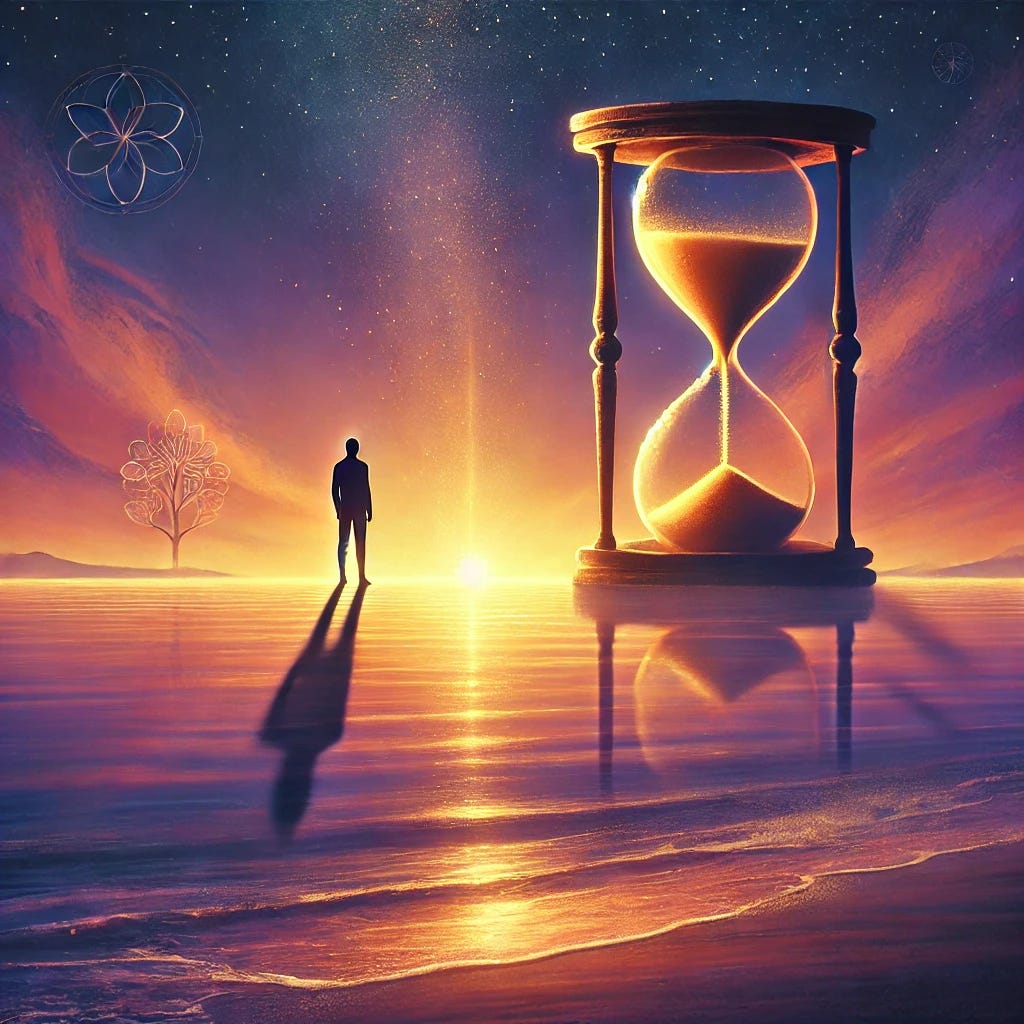die every day
YOLO, but make it sacred
I recently met a friend and greeted him like this:
“I am the last person you will ever talk to. After this, it’s over.”
Well, that sure brought him into the present moment. What followed was a heartfelt conversation filled with tears, laughter, and a dinner neither of us will ever forget.
Admittedly, this isn’t your typical friendly greeting. But I believe it’s a powerful reminder, one that doesn’t even need to be spoken aloud. Next time you’re in a meeting, quietly tell yourself that the next 45 minutes are your last. Watch how it transforms your attention.
Why? Because most of the time, we treat moments as tools—stepping stones toward some future goal. We squeeze out productivity and efficiency, letting the richness of life slip away.
Now imagine you had just 45 minutes left to live, and someone asked, “How are you?” Would you still lie and say, “I’m fine”? Or would you express what’s in your heart—gratitude, an overdue apology, or a joke to spread joy before you go?
The idea of “living like it’s your last day” feels overplayed, even reckless. YOLO vibes. But remembering your death in every moment does the opposite: it brings care, attention, and a profound appreciation for what’s here, now.
If you’ve lost someone close, you know what I mean. That grief pulls you into the present with brutal force, ripping away illusions. It strips you of pretense and plunges you into reality. But you don’t have to wait for tragedy. You can choose to honor life’s preciousness now—to be honest, to stay instead of run, to appreciate instead of overlook.
I once heard about a group of new monks sent to visit three places: a maternity ward, a nursing home, and a morgue. The message was simple: this is all of us. Birth, aging, death. Somewhere in between, we live our lives.
But what happens when we don’t remember our finiteness?
We risk sleepwalking through life, missing the chance to do what truly matters. We hold back love, hide our feelings, and avoid risks. Worst of all, we numb ourselves to the magic of being alive.
In The 5 Regrets of the Dying, a hospice worker found that people on their deathbeds often say things like:
“I wish I’d had the courage to live a life true to myself, not the life others expected of me.”
“I wish I hadn’t worked so hard.”
“I wish I’d had the courage to express my feelings.”
“I wish I had stayed in touch with my friends.”
“I wish I’d let myself be happier.”
I’m not on my deathbed, but I’ve felt those regrets. Sometimes all at once. Like the friend I deeply cared about but kept turning down because of my “busy startup.” They stopped reaching out, and I never heard from them again. Or the years I bottled up emotions, wrecking my mind and body. Some things can’t be fixed—only forgiven.
A reminder of death isn’t morbid. It’s an invitation to live.
Treat this next hour as if it’s your last.
How does it feel?


